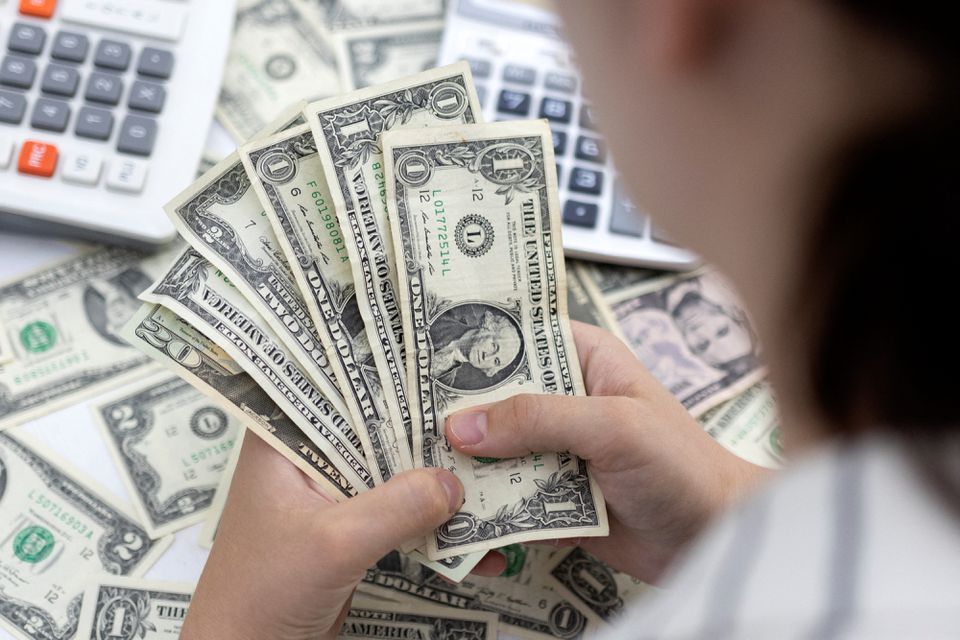The dollar jumped to a new two-decade high on Wednesday, as a decision by Russia’s President Vladimir Putin to mobilise more troops for the conflict in Ukraine rattled markets just before another expected aggressive US Federal Reserve rate hike.
Putin on Wednesday called up 300,000 reservists to fight in Ukraine and said Moscow would respond with the might of all its vast arsenal if the West pursued what he called its “nuclear blackmail” over the conflict there.
The news propelled the dollar index, which measures the greenback’s value against other major currencies, more than 0.5 per cent higher to 110.87 – its highest level since 2002.
It was last trading at 110.62, up about 0.4 per cent on the day.
European currencies bore the brunt of selling in foreign exchange markets as Putin’s comments exacerbated concern about the economic outlook for a region already hit hard by Russia’s squeeze on gas supplies to Europe.
The euro fell to a two-week low of $0.9885 , within sight of two-decade lows hit earlier this month. It was last down 0.4 per cent at $0.9930.
Sterling, which was down 0.3 per cent, fell to a fresh 37-year low of $1.1304 .
“The Russia headlines are stealing the thunder from the Fed at least for now,” said Societe Generale currency strategist Kenneth Broux.
“A concern about an escalation in the conflict is hurting European currencies. And if the Fed is also hawkish tonight then you could see the losses snowball.”
Later on Wednesday, the Fed is expected to lift interest rates by three-quarters of a percentage point for a third straight time and signal how much further and how fast borrowing costs may need to rise to tame inflation.
The policy decision, due at 1800 GMT, will mark the latest move in a synchronized policy shift by global central banks that is testing the resilience of the world economy and the ability of countries to manage exchange rate shocks as the value of the dollar soars.
The dollar index is up almost 16 per cent this year and set for its biggest annual surge since 1981.
The Australian and New Zealand dollars meanwhile hit multi-year lows. The Aussie hit a trough of $0.6655, its lowest since June 2020, while the kiwi fell to $0.5877, its lowest since April 2020.
Against the battered yen, the dollar was up just 0.12 per cent at 143.89, holding off recent 24-year peaks
“It was interesting to me that dollar/yen dipped on the news of the announcement, potentially indicating a return of the yen’s safe-haven credentials which have been absent for much of the year,” said Colin Asher, a senior economist at Mizuho Corporate Bank.







Click here to change your cookie preferences